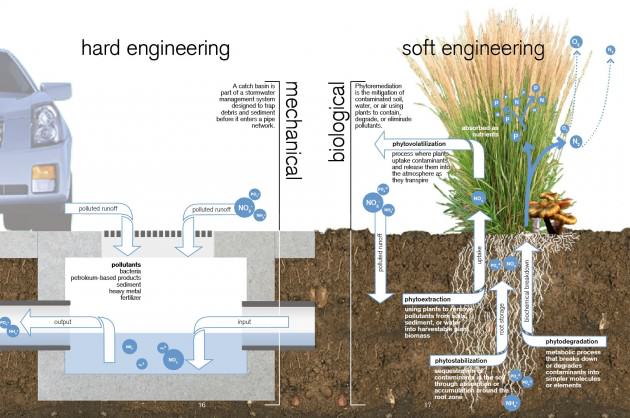
Soft engineering options, such as constructing wetlands, creating flood designated areas, and strengthening riverbanks through rebuilding riparian zones, take little time to implement. Depending on the situation and the approach used, however, soft engineered solutions can take years to see the full benefit as natural ecologies return.
Continual maintenance of some soft engineering practices, such as riverbank reinforcement, is required to ensure longer lifetime expectancy.
While soft engineering options tend to work with water ways and pursue a natural approach to flood mitigation, this approach can take a long time to prove beneficial. For example, for riverbank protection to be effective, a certain amount of vegetative growth must occur. The risk with this approach is that flooding can occur before the riverbank protection (or other soft engineering option) is fully constructed, resulting in more damage.
Soft engineering protects natural areas. Enhancing a protected area of land where wetlands, forests, and vegetation exist ensures regulated flows and water retention capabilities. Also, slowing the runoff of any precipitation will improve absorption by the ground and help recharge groundwater aquifers.
We provide Canadian educational resources on water practices to promote conservation and sustainability. Our team crafts current and relevant content, while encouraging feedback and engagement.
The Canada WaterPortal is a registered charity, #807121876RR0001
We recognize and respect the sovereignty of the Indigenous Peoples and communities on whose land our work takes place.
© 2025 All Rights Reserved.